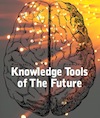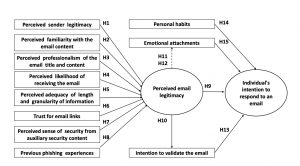Towards human-centred knowledge management tools
Pang writes:
“It’s a truism that we live in a knowledge economy. For the last decade, being competitive in the knowledge economy has required developing systems to manage information—information like consumer data, logistics, organizational practices. But the tools of the next decade will be very different. The growing accessibility of knowledge management (KM) systems has greatly reduced the competitive advantage that companies can draw from adopting them: KM is business as usual. The growing recognition that there are important kinds of knowledge work that aren’t supported by KM systems has further dulled their edge. As a result, for companies that want to become more innovative, tools designed to make information storage and sharing more efficient are less attractive. So what tools will knowledge-intensive organizations use in the next decade?”
Knowledge Tools of the Future argues that companies trying to differentiate themselves around innovation and creativity rather than efficiency and cost will turn to the array of devices, systems, methodologies, and services sometimes called the “intelligent web.†These tools exploit things like semantic Web functions, microformats, and recommendation agents to provide a more productive and intuitive experience for users. These tools are powerful because they aren’t hard to use, are relatively easy to use, and don’t require creative people to change they ways they work. They enable users to be creative and innovative—to do what humans are uniquely good at doing, in other words—while leaving the heavy lifting of brute information processing to computers, which are very good at such tasks. These tools matter because the most powerful creative tools are brains and teams. There’s a social aspect to knowledge, creativity, and innovation that we are just learning to tap. It is this social aspect of knowledge that the next generation knowledge tools, and next generation of users, will seek to magnify and support.
Organizations are in the middle of a paradigm shift from machine-heavy knowledge management tools designed to maximize efficiency and standardize organizational practices to technically lightweight, human-centered instruments that facilitate creativity and collaboration. It is this human creativity that will differentiate businesses in the future.




